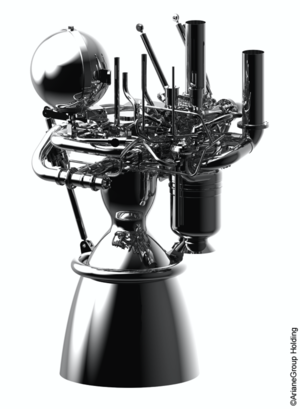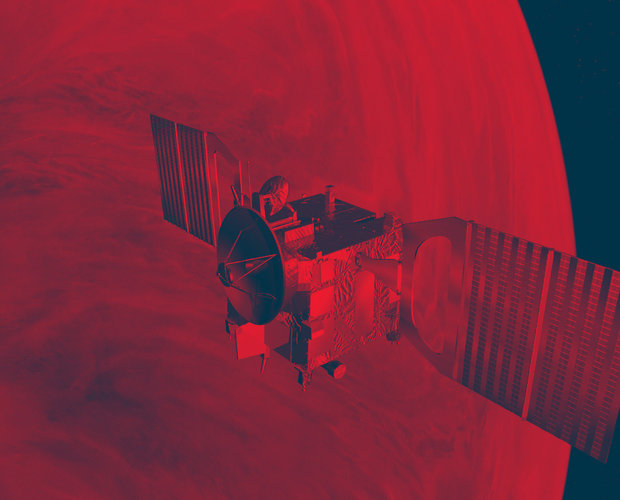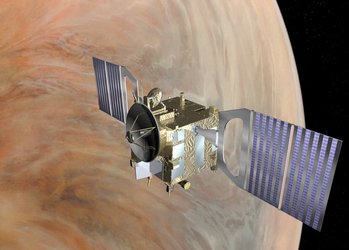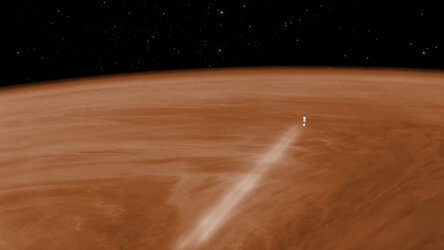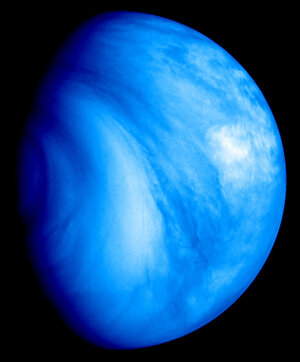Project Scientist: An interview with Håkan Svedhem
Håkan Svedhem always finds space launches to be exciting moments, but when you have been involved so much in building the science payload, there is something much more special when it is 'your' spacecraft on the launchpad...
|
Håkan Svedhem Born: 9 April 1958 in Göteborg, Sweden Experience: Joined ESA in 1984 to work in the Microwave Instrumentation section. In 1986 he transferred to the Space Science Department to work on instrumentation for planetary science. Håkan took part in the studies and preparations for the Rosetta, Huygens and BepiColombo missions. In 2001 he worked as Study Scientist for the Cosmic Dune Mission and in 2002 he became the Project Scientist for the ESA Venus Express mission. His research interests are interplanetary dust and planetary atmospheres and surfaces. He has been co-investigator on nine experiments on Russian, Japanese and ESA planetary missions, is Team Leader for the Titan Radar Altimetry team on the Huygens probe and has been involved in several additional space projects. He has authored or co-authored over 60 scientific papers on subjects ranging from the flux of interstellar and interplanetary dust, to acoustic sounding in planetary atmospheres and space instrumentation design. He is married with two sons and two daughters, aged between 7 and 15 years, and has many interests including orienteering, skiing, nature and classic cars. |
ESA: How do you feel as Venus Express gets so close to its launch date?
Håkan:I feel very excited that we are now getting to the point that we all have worked so hard for during the last years. I have always found launches to be exciting moments, but a launch where my colleagues and I have been involved so much in building the payload is of course something special.
At the same time I feel confident since I know that everybody involved has done a very good job and that all possible tests have been done to make sure everything is just as it should be. The Soyuz rocket we are using has a very good record so I am very hopeful that it will work out well.
ESA: What are your greatest hopes for the mission?
It would be great to discover an active volcano and to prove that the planet still is active geologically.
Håkan: I hope we will have a mission that lasts at least as long as we need to characterise Venus in the areas we have defined as our objectives and that, at least for some of the major questions, we will come a bit closer to an answer. For example, it would be great to discover an active volcano and to prove that the planet still is active geologically.
ESA: What are the next big challenges for the mission after launch?
Håkan: The immediate activity will be to check out all systems and instruments on board. The proper trajectory has to be verified, and adjusted if necessary, to ensure that we arrive at Venus in the right place and at the right time.
Then the next big event will be the orbit insertion around Venus where it is very important that the rocket motor will start exactly at the right time and fire during for the required duration. This is a very critical moment.
ESA: Assuming all goes well at and after launch, what then has to be done by the Project Scientist?
Venus was once quite similar to Earth, but now the two planets are very different. Why are they so different now?
Håkan: I have to continue to plan how and when the different types of observations shall be done when we are in Venus orbit. There are many things to keep track of. How are the light conditions of the area to observe, what are the fields of view for the different instruments, how often shall a certain area be observed, how much power will the instruments need and how much data can be sent back to the Earth at the time.
All this I sort out together with my team in ESTEC and with the teams in the participating institutes that built the instruments. Before we start the nominal observations there is an extended period when we will check that all instruments are performing as we expect and as we measured in the laboratory before the launch.
ESA: What most fascinates you about Venus?
Håkan: There are so many interesting questions about Venus. For example, why is the atmosphere rotating so fast around the planet while the planet itself is rotating so slowly? We believe that long ago the temperature was much less than now and that water was flowing on Venus, but how and when did it disappear?
The whole surface of Venus has not long ago (in geological terms) been completely changed by material from the interior streaming out through volcanoes and cracks in the crust. Is this process still active somewhere on the planet?
Perhaps the most fascinating question about Venus is that Venus was once quite similar to Earth, but now the two planets are very different. Why are they so different now and when did this change start?
ESA: After all the excitement with Venus Express launch, will you have some time to relax, and how?
Become good in something that you really like, and then the work becomes like a hobby.
Håkan: There will not be so much time since we still have much work to do for preparing the arrival of the spacecraft at Venus. Hopefully I will be able to spend some more time with my family who have not seen too much of me during the last year.
ESA: How did you first become interested in space science?
Håkan: I remember very well the landing of Apollo 11 and the first men walking on the Moon. That really made a strong impression on me, but it was not until I studied at university that I really became interested and thought I would like to work in the space field as a profession. I have always been fascinated by images from space, both of Earth and the planets.
ESA: What advice would you give somebody who wanted to work in space exploration?
Håkan: Try to talk to someone who works with space to inform yourself what types of activities there are. Get a good, broad education. There are so many different types of jobs related to space, so it is good not to be too specialised from start.
Study things that you think are fun and seem interesting. It is easy to become good in something that you really like and then the work becomes like a hobby.








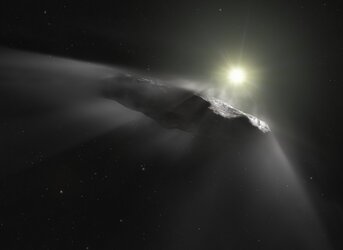






 Germany
Germany
 Austria
Austria
 Belgium
Belgium
 Denmark
Denmark
 Spain
Spain
 Estonia
Estonia
 Finland
Finland
 France
France
 Greece
Greece
 Hungary
Hungary
 Ireland
Ireland
 Italy
Italy
 Luxembourg
Luxembourg
 Norway
Norway
 The Netherlands
The Netherlands
 Poland
Poland
 Portugal
Portugal
 Czechia
Czechia
 Romania
Romania
 United Kingdom
United Kingdom
 Slovenia
Slovenia
 Sweden
Sweden
 Switzerland
Switzerland























